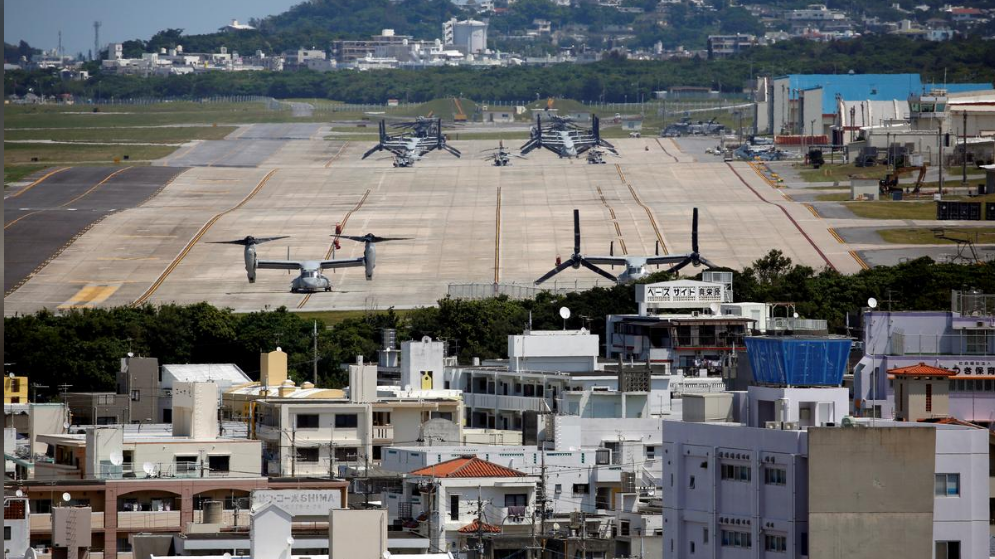Authorities have confirmed 36 more coronavirus infections at Camp Hansen on Japan's Okinawa, taking to 136 the tally at U.S. military bases on the island while potentially putting more strains on the relations between the U.S. Marine Corps and the local government.
The outbreak inside the U.S. installations emerged over the weekend, with dozens of confirmed cases reported by the U.S. Marine Corps, which has about 20,000 troops stationed on the island.

Okinawa Governor Denny Tamaki said it was "extremely regrettable" that a large number of infections had occurred in a short time, adding that Okinawans were "shocked" by the news.
"I can't help but have strong doubts about the U.S. military's measures to prevent infections," he said, adding there were reports of personnel leaving bases for beach parties and visits to night life districts around Independence Day on July 4.
Fearing that infected American troops may have come into contact with local residents, both the governor and the Okinawa prefectural assembly demanded more information from the Marine Corps about the number of cases.
Tamaki was also expected to fly to Tokyo on Wednesday morning to call on the U.S. ambassador and representatives of the Japanese government to halt the transfer of any more U.S. military personnel to the prefecture amid the outbreak.
On its Facebook page for Pacific bases, the Marine Corps said it was prohibiting off-base activities for all installations across Okinawa, except essential needs such as medical appointments approved by a commanding officer.
"We are trying to limit as much contact (with local people) as we can, as we look to contact tracing of infected personnel," a U.S. military spokesman said.
Japan has been relatively successful in containing the COVID-19 outbreak. Excluding American cases, Okinawa has recorded fewer than 200 infections since February.
While many citizens and businesses on Okinawa welcome the troops as customers and neighbors, the presence of military bases on the island has not always sat well with the local population. Over the years, American military personnel have been occasionally at odds with the locals.
In August 2018, some 70,000 Okinawans flooded the streets of Naha, the island's capital, and protested against the central government's planned relocation of a U.S. military base from a heavily populated area to a remote location on the island. The demonstrators not only called for the abortion of this plan because of the damage it could do to the local environment of the new site, but also demanded the entire removal of all U.S. military bases on the island.
Okinawa was the site of Japan's only domestic battleground during the closing days of World War II. The island remained under U.S. rule for 20 years after the rest of Japan regained its sovereignty.
(With input from agencies)